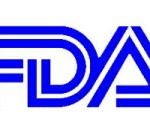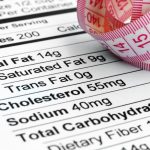The FDA has completed final administrative actions on the use of partially hydrogenated oils (PHOs), also known as trans fats, in the food supply. This final rule reflects the agency's reasoning in removing this product. In 2015, the FDA stated that these oils are harmful to human health, and that removing them from the food supply could prevent thousands of heart attacks every year. Oils are hydrogenated to make them sold at room temperature. PHOs were used to make many foods because they were a cheap source of solid fats. Trans fats raise the level of LDL proteins in the blood, they can weaken cell membrane structures, contribute to insulin resistance, and are associated with certain types of cancer. In the final rule, the FDA states that PHOs are no longer included in an … [Read more...]
Report Finds Trans Fats Increase Mortality Risk
A study published in the BMJ (British Medical Journal) has found that consumption of trans fats is associated with greater risk of mortality, a greater risk of dying from heart disease, and a greater risk of developing heart disease. Researchers in Canada reviewed 41 observational studies, which means the association cannot be "causal". But the certainty between trans fat consumption and coronary heart disease is "moderate", and the certainty between saturated fat and all mortality outcomes is "very low". Dietary guidelines recommend that saturated fats should be limited to less than 10% of daily calorie intake. The report concludes that "Saturated fats are not associated with all cause mortality, CVD, CHD (coronary heart disease), ischemic stroke, or type 2 diabetes, but the … [Read more...]
FDA Orders Manufacturers to Omit Trans Fats Within 3 Years
Today, the FDA finalized its determination that trans fats, made from partially hydrogenated oils (PHOs), are not "generally recognized as safe" or GRAS, for use in human food. Food manufacturers will have three years to remove this ingredient from products. FDA's Acting Commissioner Stephen Ostroff said in a statement, "the FDA's action on this major source of artificial trans fats demonstrates the agency's commitment to the heart health of all Americans. This action is expected to reduce coronary heart disease and prevent thousands of fatal heart attacks every year." Since 2006, food manufacturers have been required to include trans fat content information on nutrition labels on all food products. But manufacturers could put "0 grams trans fat" on the label if the product contained … [Read more...]
Trans Fat Consumption is Linked to Diminished Memory
According to a study by the American Heart Association, trans fat consumption is linked to diminished memory in working-aged men. The American Heart Association Meeting Report Abstract 15572 states that in a study of about 1,000 healthy men, those who consumed the most trans fats showed "notably worse performance on a word memory test." The strength of this association remained even after the study results were adjusted for age, education, ethnicity, and depression. Dr. Beatrice A. Golomb, lead author of the study and professor of medicine at the University of California-San Diego said in a statement, "Trans fats were most strongly linked to worse memory, in young and middle-aged men, during their working and career-building years. From a health standpoint, trans fat consumption has … [Read more...]
New Study Questions Saturated Fat Heart Disease Link
A new study published in the Annals of Internal Medicine questions the information the public has been told about a link between saturated fat intake and heart disease risk. The study, called "Association of Dietary, Circulating, and Supplement Fatty Acids with Coronary Risk" is a meta analysis and review of studies conducted over the years and published in peer review journals. The authors of the study did find a link between trans fats intake and heart disease. Trans fat is a "fake" fat that is made by bubbling hydrogen through oil to produce a solid product. It has been used for years in commercial products. But they did not find evidence of dangers from saturated fat, the types of fats found in dairy and meat products. They also looked at possible benefits to eating foods rich in … [Read more...]
FDA Extending Comment Period on Trans Fat Reduction
The FDA is officially extending the comment period on FDA's preliminary notice that partially hydrogenated oils, otherwise known as trans fats, will be removed from the "generally regarded as safe" (GRAS) list. FDA published this notice on December 17, 2013. The comment period is being extended by 60 days, to March 8, 2014. Many people had requested additional time to provide more comments. You can submit comments electronically to the FDA docket. Use docket number FDA-2013-N-1317. The FDA is stating that "based on new scientific evidence and findings of expert scientific panels, the FDA has tentatively determined that partially hydrogenated oils, which are the primary dietary source of industrially produced trans fatty acids, or trans fat, are not generally recognizes as safe for … [Read more...]
Congressman Steve Israel Reintroduces Trans Fat Labeling Bill
Back in 2007, Congressman Steve Israel (D-NY) introduced a bill that would close a food labeling loophole. That loophole lets food manufacturers use a "0 trans fat" label on foods that do contain trans fat. As long as there is less than 0.5 grams of trans fat per serving, the deceptive label is applied. At that time, the American Heart Association recommended that consumers eat no more than 2 grams of trans fats per day. We now know that there is no known safe level of trans fat consumption. He reintroduced the bill to Congress last month. Obviously, the problem with that loophole is that most people eat more than one serving of a product at one time. For instance, a small bag of popcorn usually contains two servings, but most people eat the entire three ounces. With that deceptive … [Read more...]
FDA Moves to Ban Trans Fats
A few years ago, trans fats were all over the news. Those artificial fats are made by mixing polyunsaturated oils with hydrogen gas so the oil solidifies and can be used in baking. In that process, the hydrogen molecules bond with the carbon molecules; this can happen in two ways. If the hydrogen molecules bond on the same side of the carbon molecule, the configuration is called "cis". This puts a kink in the carbon chain, so the molecules cannot pack together and the product stays liquid at room temperature. But if the hydrogen molecules bond on opposite sites of the chain, the configuration is called "trans" and the carbon chain will be straight. The molecules pack together, and the oil becomes a solid at room temperature. Trans fats are treated just like natural fats by your body. … [Read more...]
Artificial and Natural Trans Fats: They Are Different
By now, almost everyone has heard about trans fats and how unhealthy they are. In fact, studies have shown that trans fat consumption causes at least 30,000 deaths in the United States every year. The government has not set an upper limit on trans fat consumption because there is no safe intake amount. But there are two kinds of trans fat: natural and artificial. Natural trans fats occur naturally in dairy products and meat, made by a enzymatic process in the guts of ruminant animals. Artificial trans fats are man-made by bubbling hydrogen through polyunsaturated oils, making it a solid. And scientists think that natural trans fats are good for you. A study published in the March 2008 volume of American Journal of Clinical Nutrition, called the TRANSFACT study, found that in women, … [Read more...]
Study Links Trans Fat Consumption and Aggression
A new study from a collaborative effort by several University of California Departments of Medicine has found that trans fat consumption is significantly linked to behavioral irritability and aggression. Trans fats are an artificial fat that used to be added to many foods. In fact, food companies used so much of it, because it was cheap and worked well, that 7% of the calories Americans consumed came from trans fat. Food Poisoning Bulletin has reported before on the link between trans fat consumption and ischemic stroke risk in women and the link between trans fat consumption and other diseases such as heart disease and cancer. This new study looked at 945 adult men and women who completed a dietary survey and underwent behavioral assessments. The scales used were the Overt … [Read more...]







